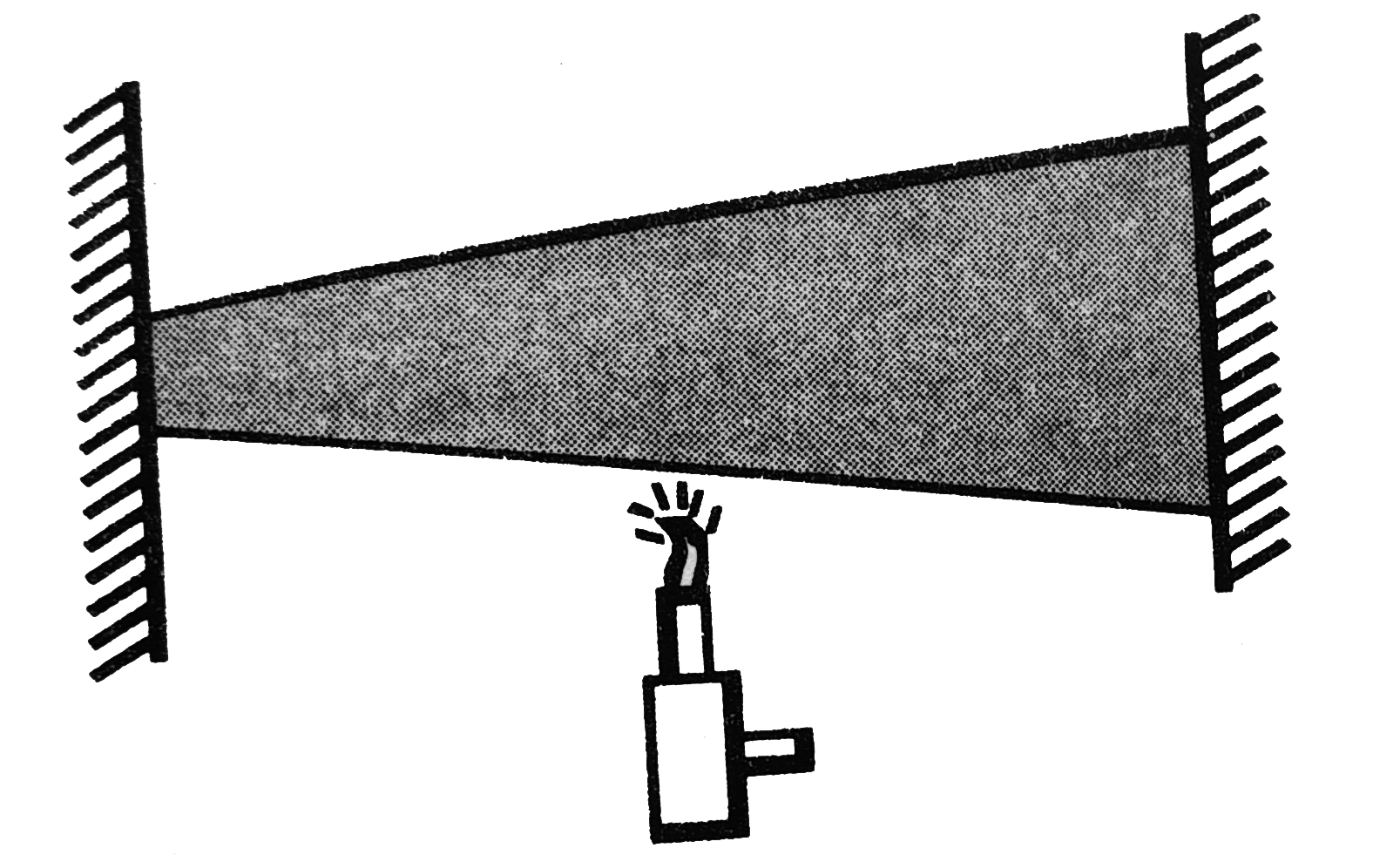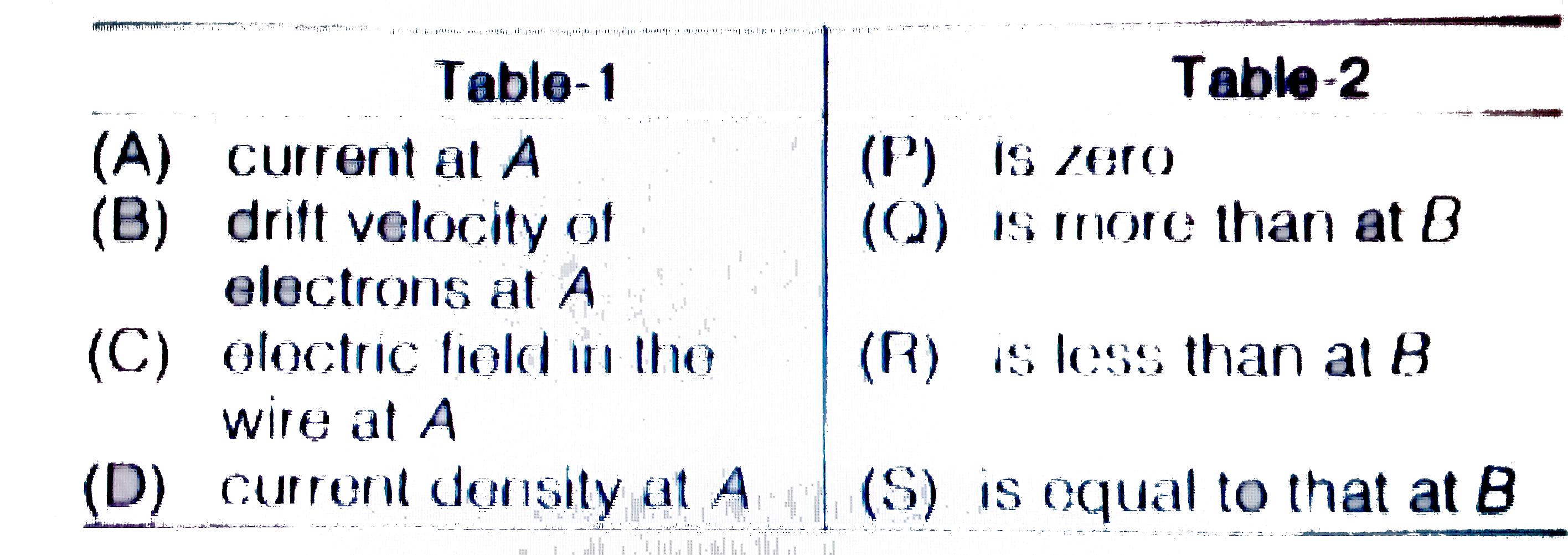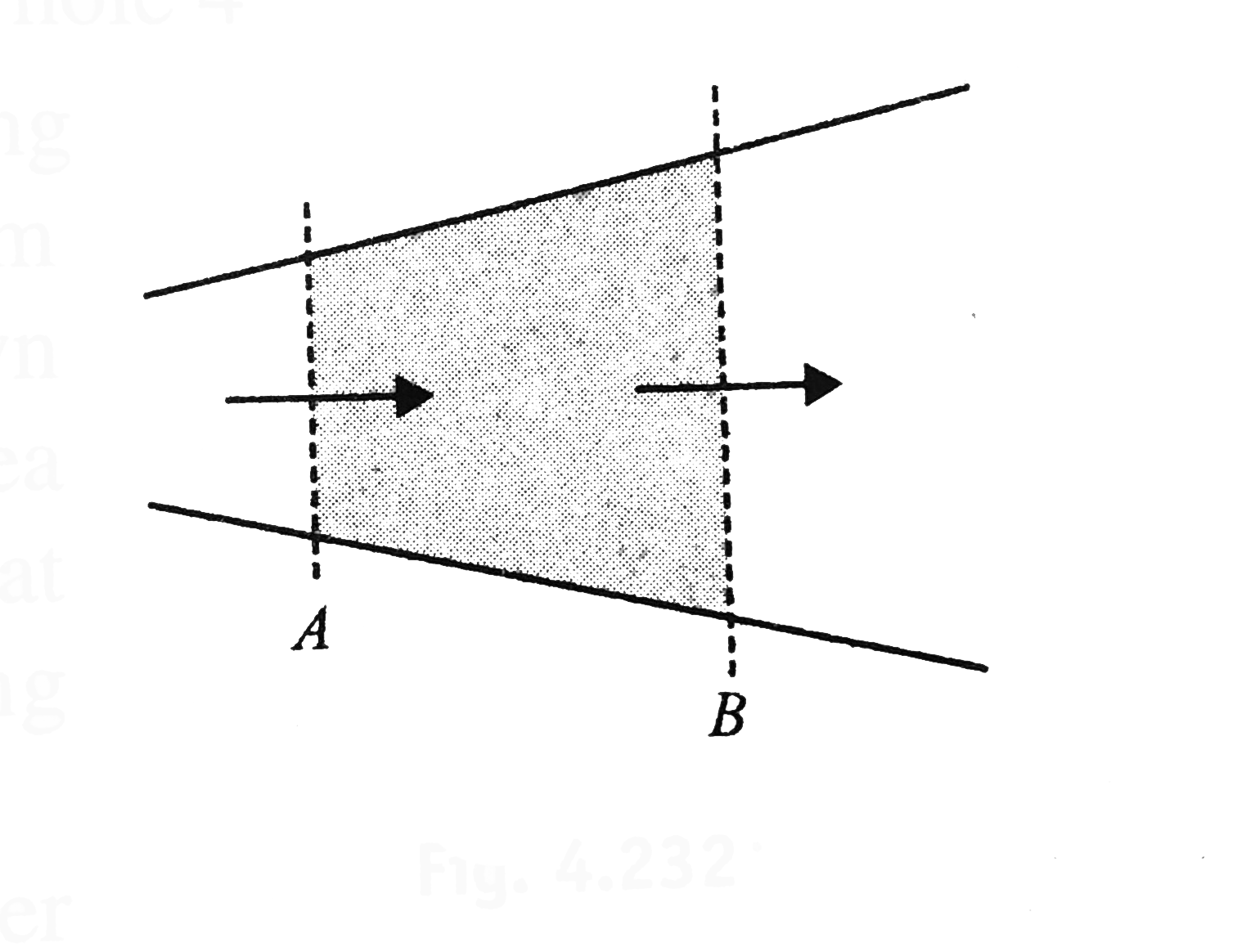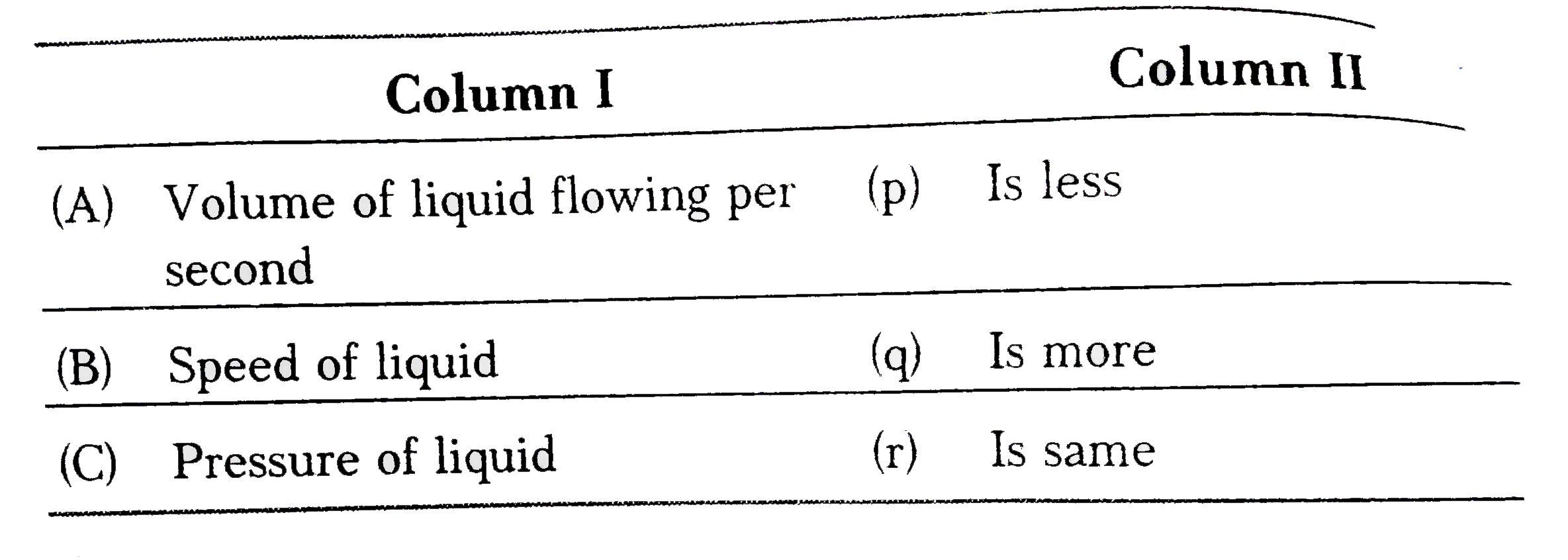A rod is made of uniform material and has non-uniform cross section. It is fixed at both the ends as shown and heated at mid-section. Which of the following are not correct?

Force of compression in the rod will be maximum at mid-section.
Compressive stress in the rod will be maximum at left end.
Since rod is fixed at both the ends, its length will remain unchanged. Hence, no strain will be induced in it.
Force of compression is the same throughout the rod.
The correct Answer is:A, C
As force of compression is same throughout the rod, due to static equilibrium, compressive stres s will be maximum at the left end, least at the right end.
Topper's Solved these Questions
- BOOK - NARAYNACHAPTER - MECHANICAL PROPERTIES OF SOLIDSEXERCISE - COMPREHENSION TYPE11videos
MECHANICAL PROPERTIES OF SOLIDS
- BOOK - NARAYNACHAPTER - MECHANICAL PROPERTIES OF SOLIDSEXERCISE - SINGLE ANSWER TYPE QUESTIONS13videos
MECHANICAL PROPERTIES OF SOLIDS
- BOOK - NARAYNACHAPTER - MECHANICAL PROPERTIES OF SOLIDSEXERCISE - SINGLE ANSWER TYPE15videos
MECHANICAL PROPERTIES OF SOLIDS
- BOOK - NARAYNACHAPTER - MECHANICAL PROPERTIES OF FLUIDSEXERCISE - EXERCISE - III30videos
MECHANICAL PROPERTIES OF FLUIDS
- BOOK - NARAYNACHAPTER - MOTION IN A PLANEEXERCISE - Level-II(H.W)31videos
MOTION IN A PLANE
Similar Questions
Current is flowing through a wire of non-uniform cross section. Cross section of wire at A is les than the cross section of wire at B. Then match the following
 View Solution
View SolutionConside the situation shown in figure. The frame is made of the same material and has a unifrom cross-section area everywhere. Calculate the amount of heat flowing per second through a cross section of the bent part if the total heat taken out per second from the end at 100∘C is 130J .
 View Solution
View Solution
Knowledge Check
- Question 1 - Select One or More
A non-viscous liquid is flowing through a non-uniform pipe from section A to section B as shown in the figure. Cross sectional area of the pipe at A is less than that at B. Which of the following statements are correct?
 AThe pressure at A is greater than that at BBVelocity at A is greater than that at BCTotal energy per unit volume of the liquid is greater at A than at BDAxis of the pipe cannot be horizontal
AThe pressure at A is greater than that at BBVelocity at A is greater than that at BCTotal energy per unit volume of the liquid is greater at A than at BDAxis of the pipe cannot be horizontal - Question 2 - Select One
A wire of non-uniform cross-section is carrying a steady current. Along the wire
Acurrent and current density are constantBonly current is constantConly current density is constantDneither current nor current density is a constant - Question 3 - Select One
When heat flows through a wire of uniform cross section under steady state, then
Atemperature gradient is same every whereBtemperature at a particular point remains sameCrate of heat flow is same at all cross sectionsDall the above
Consider the situation shown in figure. The frame is made of the same material and has a uniform cross-sectional area everwhere. If amount of heat flowing per second through a cross-section of part A is 60J. The amount of total heat taken out per second from the end at 50∘C is 0.132×10nJ/s. Find 'n'.
 View Solution
View SolutionA current passes through a wire a non uniform cross-section. Which of the following quantities are independent of the cross-section?
View SolutionA liquid is flowing through a pipe of non-uniform cross-section. At a point where area of cross-section of the pipe is less, match the following columns.
 View Solution
View SolutionA compressive force is applied to a uniform rod of rectangular cross-section so that its length decreases by 1%. If the Poisson's ratio for the material of the rod be 0.2, which of the following statements is correct? "The volume approximately …
View SolutionA steady current flows in a metallic conductor of non-uniform cross-section i.e., i : constant. A≠ constant.
View Solution

